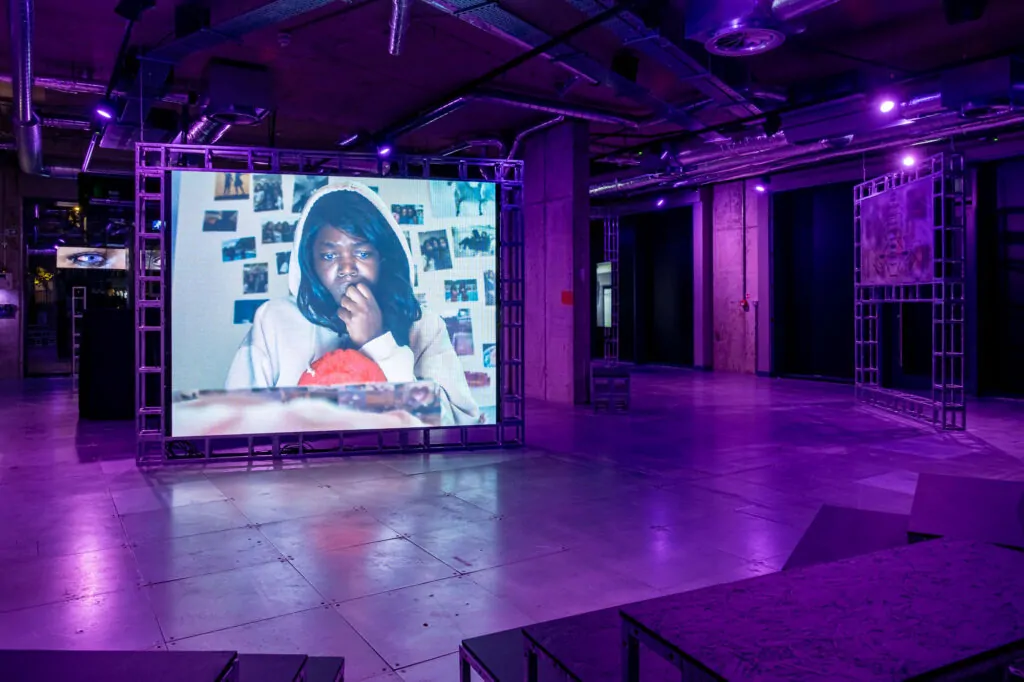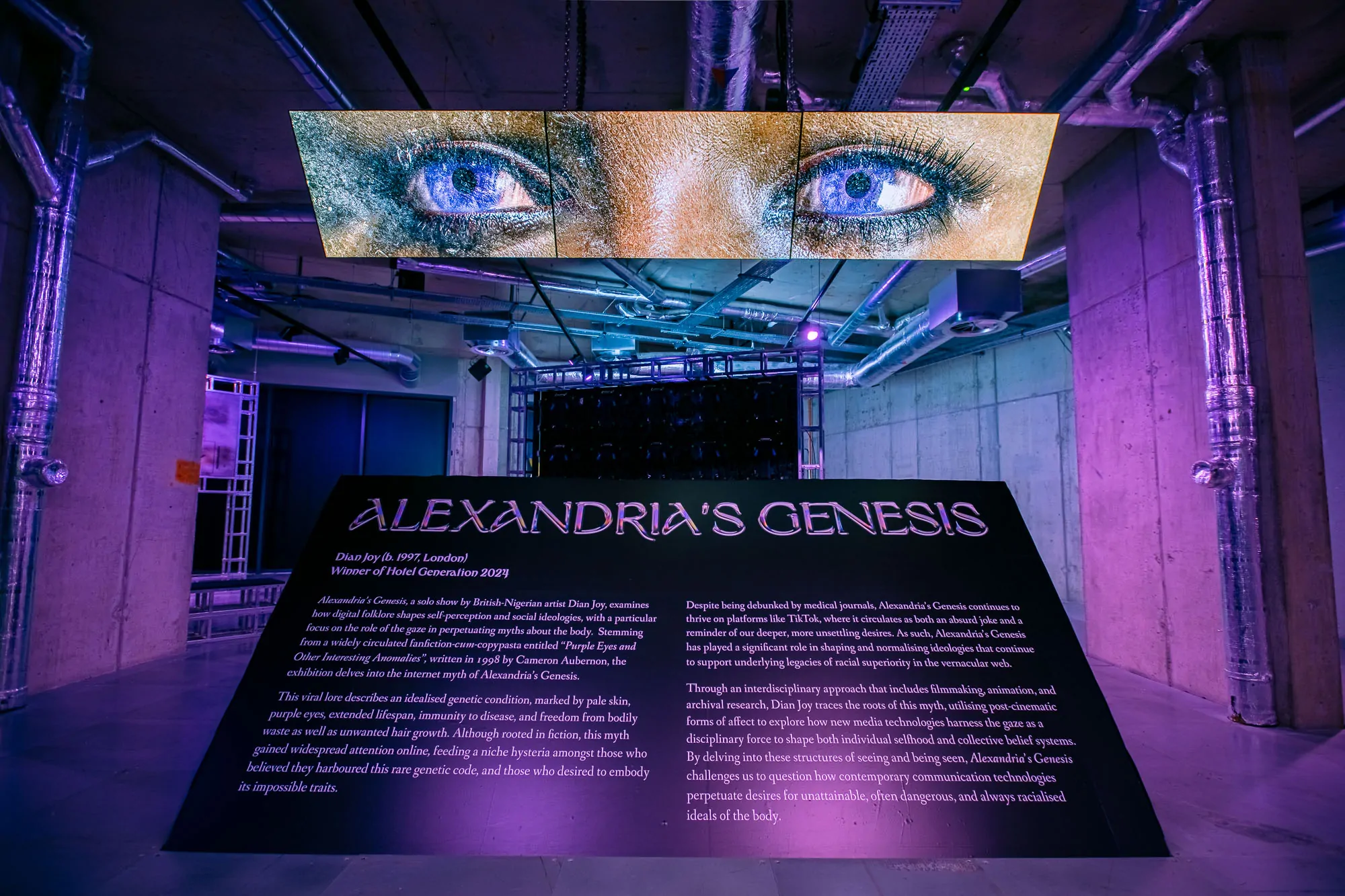Dian Joy: Alexandria’s Genesis
On view until the 12th of January 2025
arebyte Gallery
Java House
7 Botanic Square
London City Island, E14 0LG
arebyte Gallery presents Alexandria’s Genesis, an exhibition by British-Nigerian interdisciplinary artist Dian Joy. Taking its title from an internet myth – a copypasta – this exhibition situates itself between beliefs, insecurities, and desires, forming a fanfiction of a fanfiction. Operating within the dystopian struggle between disinformation and information, the fake and the real, Alexandria’s Genesis explores how reality may be mutated, augmented, and propagated by any means possible. At its core, it is a study of the social life of ideas in the digital age.
The myth of Alexandria’s Genesis—once relegated to obscure corners of the internet—has circulated on online forums and social media, evolving into many forms. This rumored genetic anomaly, said to transform people into long-living “perfect human beings” with violet eyes and flawless pale skin, claimed to bestow strength and vitality. Circulating online since 1998, the conspiracy was originally created by Daria fanfic writer Cameron Aubernon to explain her too-perfect female characters. Over time, it gained traction, spreading widely until it was eventually medically debunked.

Image courtesy of arebyte Gallery
This sticky narrative, told as an illusory truth, offers a seductive deception of genetic superiority—a story that blurs the line between desire and reality. It shapes perceptions of identity and feeds fantasies of perfection, favoring youth, shimmering white skin, lack of hair beyond birth, perfect bodies, and purple eyes.
The exhibition presents a cinematic experience set across digital and physical spaces, delving into the evolution of this myth. Dian Joy takes on this fanfiction and its grip on the collective imagination, transforming and remixing the myth once again. Joy approaches the story of Alexandria’s Genesis as a hyper-referential text—a meme that thrives on its ability to mutate and replicate. Like similar viral phenomena, the story has taken on a life of its own, mutating to survive and thrive within algorithmic systems.
Once a piece of fanfiction, the myth has evolved into a viral meme, its persuasive logic propelled by the architecture of the internet. Through this lens, the exhibition critiques how digital content acts as both a reflection of our desires and a disciplinary force—policing what we see, how we see ourselves, and how we exist within these systems. Grounded in real conversations from online chatrooms, the narrative prompts reflection on contemporary media’s influence on perceptions of the self.
Once heralded as a democratizing force for knowledge, information, and political participation, the internet has, over the past few decades, become a playground for competing narratives and increasing polarization. With life increasingly encapsulated by algorithmic processes and systems, our ways of seeing and understanding the world have drastically altered. Echo chambers flourish, algorithms prioritize engagement over truth, and the lines between fact and fiction blur.
In platforms driven by clicks and attention, conspiracy theories thrive, offering compelling yet simplistic explanations for complex global events. As trust in institutions—government, media, or science—erodes and anxiety grows, people increasingly turn to “alternative facts,” dark plots, and secret explanations to make sense of the world in an era of uncertainty, inequality, and systemic failure.

Image courtesy of arebyte Gallery
The rise and fall of conspiratorial or viral fantasies often link to real-world events and social, economic, or technological change. These narratives provide clarity and belonging to individuals seeking explanations where none seem to exist. Conspiracies like Alexandria’s Genesis thrive by exploiting insecurities, world anxieties, or gaps in official explanations. Beyond personal solace or identity, conspiracies—often framed as “objective truths”—serve as spaces for ideological co-option.
Stories like Alexandria’s Genesis are not just myths; they are adaptive narratives that morph and survive, reflecting the anxieties of the moment. Enabled by the rapid spread of social media, these myths offer an illusion and a breeding ground for ideologies to grow—from harmless entertainment to tools of cultural and political influence.
In this exhibition, Dian Joy invites us to consider how narratives—whether in the form of fanfiction or something more sinister—reflect deeper truths about power, identity, and the underlying social and political dynamics they exploit.
Dian Joy: Alexandria’s Genesis is on view until the 12th of January 2025 at arebyte Gallery
©2024 arebyte Gallery





